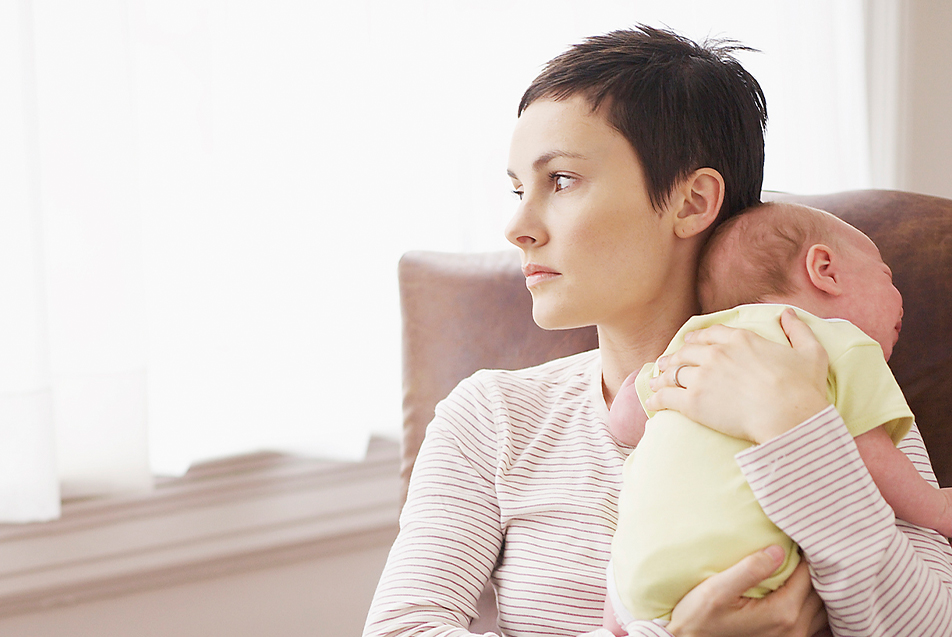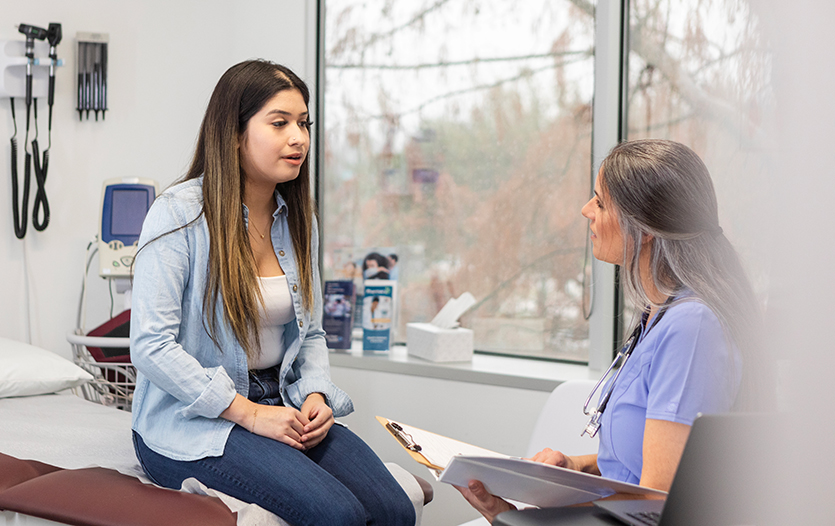
New mothers do so much planning for the arrival of a little one. They babyproof and transform their homes into a safe haven. But, according to Sarah Wolfe, RN, Family Birthing Center, Parkview Whitley Hospital, one thing most women don't count on is postpartum depression after delivery. Here, she explains some of the basic warning signs and where moms can find help.
What is postpartum depression?
Postpartum Depression (PPD) is depression that develops between the time of delivery and one year postpartum. It affects 1 out of 5 new mothers.
What causes PPD?
The condition is caused by multiple factors. After delivery, a woman’s body experiences sudden, large hormonal shifts, which can play a big role in mood changes. Add in sleep deprivation, the stress of parenting, lifestyle adjustments to having a newborn, role changes, breastfeeding difficulties, and pain and/or complications from delivery, and you have a perfect storm for PPD. Women with pre-existing depression or anxiety are at an increased risk, as are women without social support and/or physical or verbal abuse, women with financial difficulties, and women who had babies in the NICU or with other health problems.
What are the warning signs?
Feelings of hopelessness or sadness that consume your thoughts, increased crying and irritability, panic attacks, increased or decreased appetite, insomnia, inability to concentrate or make decisions, decreased ability to enjoy things, and thoughts of self-harm.
What can be done to combat PPD?
It is important for new moms who are experiencing any of the above symptoms to talk to their care provider. They can be screened for PPD and given the appropriate treatment. Joining a support group, going to personal counseling, taking prescribed antidepressant medications, receiving extra support from friends and family, and performing self-care can all help to reduce and treat perinatal mood disorders.
What can a support person do for their loved one suffering from PPD?
A support person has a big role in helping their loved one through postpartum depression. Recognizing the signs is an important first step, followed by encouraging the new mom to reach out for the professional help she needs. Providing reassurance and emotional validation is also very important to a mom suffering from this disorder. Taking care of other children, cooking and doing housework, taking care of the baby so the mom can get some sleep, and offering to accompany the loved one to appointments are all helpful.
If you are suffering from a perinatal mood disorder, contact your OB/GYN, the Parkview Behavioral Health HelpLine or the Parkview Whitley Family Birthing Center team at 260-248-9426 for dates/times of their next bi-monthly support group.




